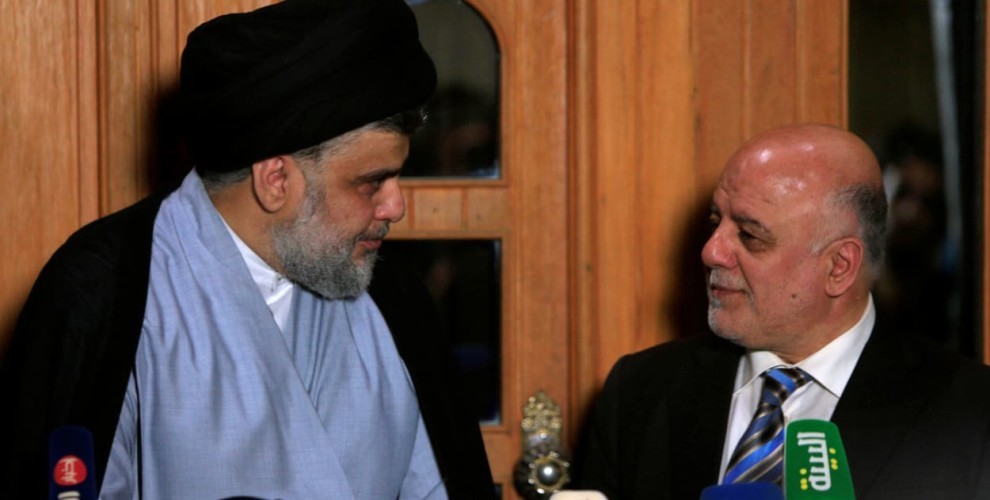Al-Sadr and al-Abadi confirm alliance to form Iraqi government
Agreement between the first and third alliances in Iraq.
Agreement between the first and third alliances in Iraq.

Winner of Iraqi parliamentary elections, Moqtada al-Sadr, has confirmed on Sunday he reached an agreement with former prime minister al-Abadi.
The new alliance will now try to form a government. Talks have been going since after the 12 May elections, and have proved more difficult than it was thought.
The elections have been stained by frauds and irregularities, yet the Iraqi Election Committee decided not to re-run the contest.
Al-Sadr had first announced an alliance for government with Hadi al-Amiri, the head of the pro-Iranian Shiite militia. Al-Amiri's list ended in the second place in the elections.
Al-Abadi, whose list came third, said that there is nothing suspicious or wrong about his alliance with Shia clergy al-Sadr. "On the contrary, al-Sadr has not change direction nor abandoned his principles."
Indeed the first three alliances in the elections are run by Shiites. Their number of seats in the assembly is over 140. At least 165 seats are required to form a government. Generally, majority coalitions are expanding to include Sunni and Kurdish deputies.
Al-Sadr spoke of a broad alliance involving all sections of the Iraqi society in order to establish a truly representative government. He wants a government covering all religions and ethnicities.
Al-Sadr presents himself as a nationalist who opposes the influence of both the US and Iran on the country.
It has to be reminded that al-Sadr run the election in a coalition with the Iraqi Communist Party.